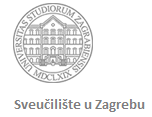Home » 8. i 10. semestar : ST-link-KNJIŽEVNI KOLEGIJI (Page 2)
Category Archives: 8. i 10. semestar : ST-link-KNJIŽEVNI KOLEGIJI
Transnational Dimensions of American White Identities
Course title: Transnational Dimensions of American White Identities (A/B, 19/20 c.) Instructor: Dr. Catherine M. Eagan ECTS credits: 6 Language of instruction: English Semester: Summer 2017 Tue 13:15 – 14:00, A 105 Thu 09:30 – 11:00, A 105 Status: elective Form of instruction: lecture (1 hour) + seminar (2 hours) Enrollment requirements: Enrollment in the English MA program. Course description: This course will […]
Moderna anglofona ženska književnost
Naslov kolegija: Moderna anglofona ženska književnost Nastavnica: dr. sc. Tihana Klepač, doc. ECTS bodovi: 6 Jezik: engleski Trajanje: 2. ili 4. semestar Status: izborni kolegij Oblici nastave: 1 sat predavanja, 2 sata seminara tjedno Uvjeti za upis kolegija: Upisan diplomski studij anglistike, književno-kulturološki smjer Okvirni sadržaj predmeta: Odabrani tekstovi oprimjeruju anglofoni književni modernizam s naglaskom […]
Etika i estetika britanskog modernizma (arhiva 16/17)
Naziv kolegija: Etika i estetika britanskog modernizma Nastavnica: dr. sc. Martina Domines Veliki, docent 8. i 10. semestar u ak. god. 2016./17. (u drugim ak. godinama i 4./6. semestar) Jezik: engleski Trajanje:1 semestar, ljetni Status: izborni Oblik nastave: 1 sat predavanja i 2 sat seminara tjedno Uvjeti: Upisan 8./10. semestar Ispit: Kontinuirano praćenje. Tijekom seminara […]
Književnost i vizualnost: američki film, naracija i psihoanaliza
Naziv kolegija: Književnost i vizualnost: američki film, naracija i psihoanaliza Nastavnica: dr. sc. Tatjana Jukić, red.prof. ECTS-bodovi: 6 Jezik: engleski Trajanje: jedan semestar, 2. ili 4., ljetni Status: izborni kolegij Oblik nastave: 1 sat predavanja, 2 sata seminara tjedno Uvjeti za upis kolegija: upisan 2. ili 4. semestar diplomskog studija SILABUS: 1. tjedan Uvod u […]
Britanski romantizam: proza (arhiva)
Naziv kolegija: Britanski romantizam: proza Nastavnik: dr. sc. Martina Domines Veliki ECTS bodovi: 6 Jezik: engleski Trajanje: 4. ili 6., 8. ili 10. semestar u ak. god. 2016/17. 4. ili 6. semestar Status: izborni Oblik nastave: 1 sat predavanja i 2 sata seminara tjedno Uvjeti za upis kolegija: upisan 4. ili 6., 8. ili 10. […]
Povijest i paradigme Američkih studija 2 (Šesnić, 2015)
Course title: The History and Paradigms of American Studies 2 (A, 19th c./20th c.) Instructor: Dr. Jelena Šesnić ECTS credits: 6 Status: elective (obligatory for American Studies majors in the 8th semester) Enrollment requirements: enrollment in the 8th and/or 10th semester Course description: This course is a companion course to the History and Paradigms of […]
The 1960s in American Film, Literature, and Music
Professor Russell ReisingOffice B-008Office hours: from March 3, Thursday 14:00-15:00, Friday 12:00-13:00Email: russreising@gmail.comPhone: 99 7952930 (Not after 10 PM or before 9 AM!)All poems indicated are easily available online. Use links I have provided when possible. March 3-4Introduction and businessTEACHING STRATEGIES AND COURSE POLICIES/COURSE EXPECTATIONS:I approach my literature course with two primary goals: to teach […]
Henry James i Edith Wharton: simptomatika američkog modernizma
Naziv kolegija: Henry James i Edith Wharton: simptomatika američkog modernizmaNastavnica: dr. sc. Tatjana JUKIĆ, red.prof.ECTS-bodovi: 6Jezik: engleskiTrajanje: jedan semestar, 8., ljetniStatus: izborni kolegijOblik nastave: 1 sat predavanja, 2 sata seminara tjednoUvjeti za upis kolegija: upisan osmi semestarCilj kolegija: Kolegij se fokusira na opis i analizu prikazivačkih praksi konstitutivnih za roman modernizma, no prije svega na […]
Pripovjedna disemiNacija Australije (arh.)
Izvođač i nositelj: Dr.sc. Iva Polak, izv.prof. ECTS-bodovi: 6 Jezik: engleski Status: izborni Semestar: 2. ili 4. Uvjeti za upis kolegija: upisan bilo koji smjer diplomskog studija Odsjeka za anglistiku Okvirni sadržaj kolegija: Odabranim književnim i filmskim djelima od druge polovine 20. stoljeća nadalje pokazat će se nova preispisivanja australskog identiteta. Kroz sup(r)ostavljanje kolonijalnog i […]
Contemporary Irish Literature and Culture: Playing with the Past
Dr. Aidan O’Malley, visiting lecturerSubject: Modern literatureCourse title: Contemporary Irish Literature and Culture: Playing with the PastECTS credits: 6Language: EnglishDuration: 1 semester, 8th and 10th (2015)Status: electiveCourse type: lectures, seminars Overview This course examines a selection of the most important Irish literary and filmic texts of the last 30-40 years. At the heart of this […]
Povijest i paradigme Američkih studija 2 (Šesnić, 2016)
Course title: The History and Paradigms of American Studies 2 (A, 19th c./20th c.) Instructor: Dr. Jelena Šesnić ECTS credits: 6 Status: elective (obligatory for American Studies majors in the 8th semester) Enrollment requirements: enrollment in the 8th and/or 10th semester Course description: This course is a companion course to the History and Paradigms of […]
Contemporary Irish Literature and Culture ARCH
Dr. Aidan O’Malley, visiting lecturerSubject: Modern literatureCourse title: Contemporary Irish Literature and CultureECTS credits: 6Language: EnglishDuration: 1 semester, 8th and 10thStatus: electiveCourse type: lectures, seminars OverviewThis course examines a selection of the most important contemporary Irish literary and filmic texts, and frames them in terms of the some of the most significant cultural and political […]
Povijest i paradigme američkih studija 2 (Grgas)
Course title: The History and Paradigms of American Studies 2 (Grgas, 2013-14)Instructor: Stipe GrgasECTS credits: 6Status: electiveEnrollment requirements: enrollment in the 8th and/or 10th semesterCourse description: This course is a companion course to the course History and Paradigms of American Studies1 which investigated the origins of the discipline of American Studies. Its purpose is to […]
Povijest i paradigme Američkih studija 2 (Šesnić, 2012)
Dr Jelena Šesnić Literary Seminar (MA Level): The History and Paradigms of American Studies 2 Spring 2012 SyllabusCourse description: This is a companion course to the History and Paradigms of American Studies 1 which thus continues to examine the changes in the methodology of American Studies since the 1970s. Major developments in this respect are […]
Amerikanističke teme 2: American Non-Fiction Writing, 1580-1880
Naziv kolegija: Amerikanističke teme 2: American Non-Fiction Writing, 1580-1880Nastavnik: dr. sc. Douglas Ambrose, red. prof. (Fulbright gost profesor)ECTS-bodovi: 6Jezik: engleskiStrajanje: jedan semestar, 8. semestarStatus: izborniUvjet za upis kolegija: upisan 8. semestar COURSE PURPOSE: This course provides an introduction to American history through various forms of non-fiction writing. Beginning with sixteenth-century English accounts of the New […]



